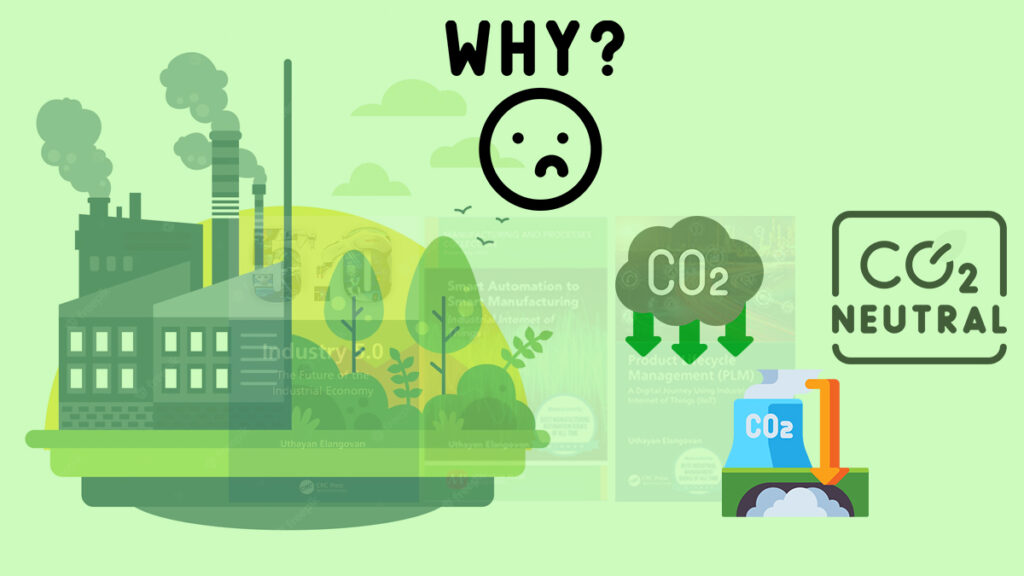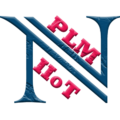Product Lifecycle Management (PLM4.0 to PLM5.0), PLM is a process that concentrates on taking care of a products end to end lifecycle, from the conception to the disposal, reuse of the item. One of the main goals of the business leaders are to improve the enterprise’s efficiency along with sustainability and certain measures needs to be adopted to steer the business successfully into the future and to achieve the desired result.

We hear about the terms like Carbon neutral, Carbon Free, NetZero, Decarbonization and so on. So what it implies to the manufacturer? Manufacturers are thriving hard to produce carbon-free products, those that do not produce any kind of carbon discharges during the manufacturing, and operational process. It includes the entire supply chain.
The manufacturing industry is going through seismic changes towards an electronic, automated, innovative, besides sustainable future, yet numerous small to medium to large enterprises lack the tools they require to keep up. As digitization holds, manufacturing need to attract even more ability right into existing technology and thinks about the entire life of parts, from product design to manufacturing to solution to end of life with reuse. As well Customer expectations influence New Product Development team to utilize advancements in PLM , which boost information flow to achieve business value.
Environmental sustainability
According to the U.N. Environment Program, environmental sustainability involves making life choices that guarantee an equivalent, otherwise far better, lifestyle for future generations.
Aim of Environmental sustainability in manufacturing is to minimize waste and reduces the environmental impact.
Environmental sustainability is an important factor, that suppliers require to examine as well focus on the whole range of environmental dangers along with the possibilities relevant to the organization strategy. Continual reformation initiatives usually prioritize labor efficiency and product efficiency. Moving in the direction of resourcing besides productivity for sustainability needs additional goals with key performance indicators.
Sustainability is a core digital transformation initiative and its success will certainly depend upon exactly how well it is integrated with the total organization development approach.
Basic need of any manufacturing industry should adhere to commitment towards environmental, social and governance policy. It is essential that environment friendly manufacturing practices should be initiated upfront by the manufacturing enterprises is the pathway towards NetZero. Unobstructed flow of enterprise data helps decision makers to have a strong insight into their current state and future sustainable roadmap. Consequently, product development team need to design cost effective product with eco-friendly materials meeting customer demands. The utilization of PLM along with Industry 4.0 technologies govern the importance of carbon emission in terms of sustainable economic development of the manufacturing organization in the era of Industry 5.0.
Example
Best example would be, automotive industry transformation – a huge change of this era. Quick technological growths resulting in improvements in design and manufacturing, boosts in electronic driving systems, altering customer choices, expanding concern about sustainability and regulative stress, key measures to transform the frameworks and developments in batteries have actually brought about substantial price reductions opening up great deals of possibilities for electric vehicles manufacturing.
Another example is the hi-tech industry, manufacturing of Printed Circuit Board. Effective and reliable electronic component design are contributing to a greener electronics industrial sector by decreasing energy intake in exerting to discover new and also much safer options to materials and also processes that present a hazard to environment and people. PCB suppliers are constantly facing difficulties in addressing waste generation, lowered performance along with increased power consumption always set back the techniques created to decrease prices.
Carbonless Manufacturing
As a data driven economy, PLM has started to redefine the value of data in the manufacturing sector, transforming the product development in today’s digital age. Governing compliance require an effective combination of design and manufacturing applications. PLM is considered the backbone that allows successful collaboration with other enterprise applications such as CAD, PDM, ERP, MES and so on. Aim of sustainability is to design and develop manufacturing process and component, wherein there is absolutely no impact on the atmosphere and accomplish 100% component recyclability. Carbon less manufacturing is seen from different dimensions among the industrial sector are environment, culture, economic situation, technology and performance monitoring. PCB manufacturers are currently concentrating on such merging to realize larger benefits of industrial transformation to attain sustainable production.
Reducing the carbon footprint of the manufacturing industry through data sharing, an article from World Economic Forum, which says “With manufacturing industries on the verge of a data-driven revolution, this data sharing will enable manufacturers to establish a baseline of carbon emissions and provide the foundation for initiatives to decarbonize production operations”.
The PLM Green Global Alliance (PGGA) founded by Richard McFall, is an international community of professionals who work with Product Lifecycle Management (PLM) enabling technologies and who are collaborating for a more sustainable decarbonized circular economy. Checkout PLM Green Global Alliance founder Jos Voskuil with PLM vendors on sustainability (Life Cycle Assessment)
Seamless assimilation of cutting-edge technology by Industry 4.0 incorporated with Industry 5.0 creates huge amounts of information, which plays an essential role in establishing methods from ecological, societal, besides financial perspectives. Small and medium-sized contract suppliers, mainly concentrate on energy effectiveness, performance, competitiveness, expense decrease, but not on lasting manufacturing goals. Recognizing the benefits of PLM in the era of Industry 4.0 via Industry 5.0, transform themselves right into a smart connected ecological community lined up with sustainable objectives.
To harmonize sustainability and compliance, manufacturers will require to adopt a step-by-step method to welcoming connected Smart PLM to Smart Sustainable PLM (PLM4.0 to PLM5.0)
Final Thoughts
The manufacturing sectors needs to strictly dedicate to environmental, social and corporate governance plan focusing on waste generation management and reducing the damage on the ecosystem. Replacing materials with safe characteristics parts / subassembly in product design via PLM as well ensure safety for employees and society would be a substantial progression. Changing demands and acceptance among customers that value is not only reflected in the cost of the service or product, whereas it lies in the total sustainable value proposal of the organization and also its offering to accomplish the wanted returns.

